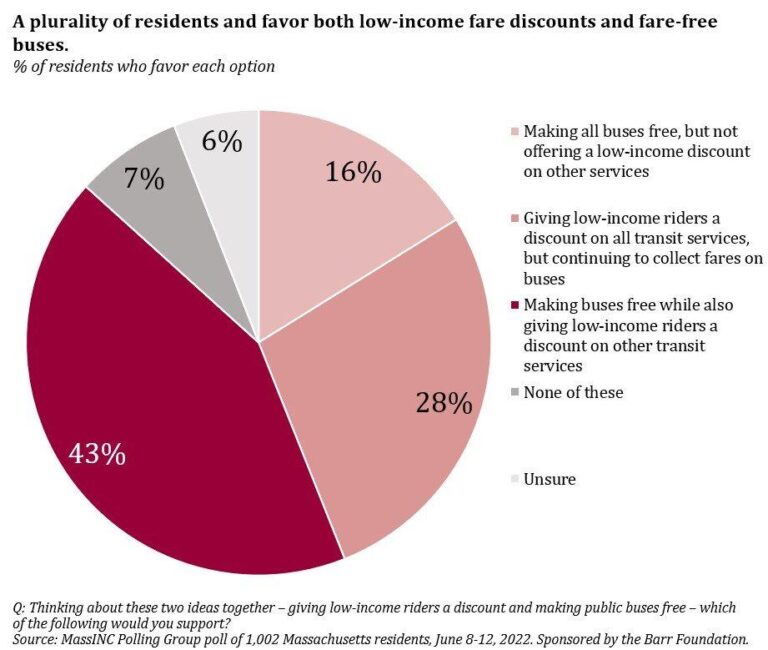Massachusetts has allocated a record $8 billion for transportation in its Fiscal Year 2026 budget,underscoring the state’s commitment to enhancing infrastructure and improving mobility.The considerable investment aims to address critical upgrades across highways, public transit, and rail systems, supporting economic growth and sustainability initiatives statewide. This unprecedented funding reflects Massachusetts’ strategic focus on modernizing its transportation network to meet current demands and future challenges.
Table of Contents
- Massachusetts Commits Eight Billion Dollars to Modernize Transportation Infrastructure
- Focus on Public Transit Expansion and Roadway Improvements Across the State
- Analysis of Funding Allocation and Project Prioritization in the FY2026 Budget
- Recommendations for Maximizing Impact and Enhancing Regional Connectivity
- Future Outlook
Massachusetts Commits Eight Billion Dollars to Modernize Transportation Infrastructure
Massachusetts is poised to inject $8 billion into its transportation network as part of the FY2026 budget, marking one of the largest infrastructure investments in recent history. This thorough funding will target the modernization of roads, bridges, public transit systems, and critical safety upgrades across the state. Leaders emphasize the commitment to enhancing connectivity, reducing congestion, and promoting sustainable transit options to support economic growth and improve quality of life for residents.
The allocation focuses on several key priorities, including:
- Renovation of aging bridges and highways to ensure safety and durability
- Expansion of public transit networks, with investments in rail, bus routes, and accessibility improvements
- Innovative infrastructure projects aimed at reducing carbon emissions and promoting green technologies
- Upgrades to pedestrian and bicycle pathways to encourage choice, eco-friendly transportation modes
Officials state this funding will not only create thousands of jobs but also position Massachusetts as a leader in forward-thinking transportation solutions.
Focus on Public Transit Expansion and Roadway Improvements Across the State
Massachusetts is ramping up its commitment to modernize and expand the state’s transportation network with a meaningful investment targeting public transit and roadway infrastructure. The FY2026 budget allocates a substantial portion of the $8 billion fund to bolster transit lines, enhance accessibility, and reduce congestion across urban and suburban corridors. Key initiatives include upgrading rail systems, expanding bus routes, and integrating sustainable transit solutions designed to promote cleaner, more efficient travel for millions of residents.
The improvements extend beyond public transit, focusing heavily on critical roadway repairs and safety enhancements. The comprehensive plan prioritizes:
- Rehabilitation of aging bridges and highways to ensure long-term durability and reliability
- Expansion of key commuter routes to alleviate bottlenecks and improve traffic flow
- Implementation of advanced traffic management systems to optimize travel times and reduce accidents
- Investment in pedestrian and bicycle infrastructure to support multi-modal transportation options
These efforts collectively aim to transform the transportation landscape, fostering economic growth and enhancing quality of life across the Commonwealth.
Analysis of Funding Allocation and Project Prioritization in the FY2026 Budget
Massachusetts’ FY2026 budget reflects a strategic commitment to revitalizing the state’s transportation infrastructure, earmarking a substantial $8 billion to address critical needs. The allocation prioritizes projects that promise to deliver the most significant impact on traffic congestion, public safety, and environmental sustainability. Funding is distributed with a clear focus on:
- Expansion and modernization of key highway corridors to reduce bottlenecks.
- Enhancement of public transit systems including bus and rail upgrades.
- Investment in sustainable transportation alternatives such as bike lanes and electric vehicle infrastructure.
These priorities demonstrate a balanced approach to short-term fixes and long-term planning.
Decision-makers employed a data-driven methodology in project prioritization, incorporating traffic studies, economic benefits analyses, and community input. High-impact, equitable investment emerged as a central theme, ensuring underserved regions receive attention alongside metropolitan hubs. Moreover, the budget promotes integration across transportation modes, empowering seamless connectivity throughout Massachusetts. This approach aims to boost economic growth, reduce carbon emissions, and improve daily commutes for residents statewide.
Recommendations for Maximizing Impact and Enhancing Regional Connectivity
Strategic investments focused on interoperability and seamless transit options are essential to unlock the full potential of Massachusetts’ $8 billion transportation budget. Prioritizing multimodal hubs that integrate commuter rail,bus rapid transit,and bike-sharing programs will substantially reduce travel times and foster regional economic growth. Enhancing digital infrastructure with unified ticketing systems and real-time passenger information across transit agencies can elevate user experience and boost public transit ridership.
Collaboration between municipalities and regional planning entities is critical to ensure infrastructure projects address cross-jurisdictional challenges. Key recommendations include:
- Developing corridor-based approaches that connect urban centers with underserved suburban and rural communities
- Leveraging data-driven approaches to prioritize maintenance and expansion investments
- Encouraging public-private partnerships to accelerate innovation in sustainable transportation solutions
- Implementing policies that protect and enhance equity in transportation access
Future Outlook
As Massachusetts moves forward with its ambitious $8 billion investment in transportation for the fiscal year 2026, the state aims to enhance infrastructure, improve public transit, and support economic growth. This significant funding underscores the commitment to creating a safer, more efficient, and sustainable transportation network for all residents.Stakeholders and citizens alike will be watching closely as projects progress and the impacts of this historic budget allocation begin to unfold.

